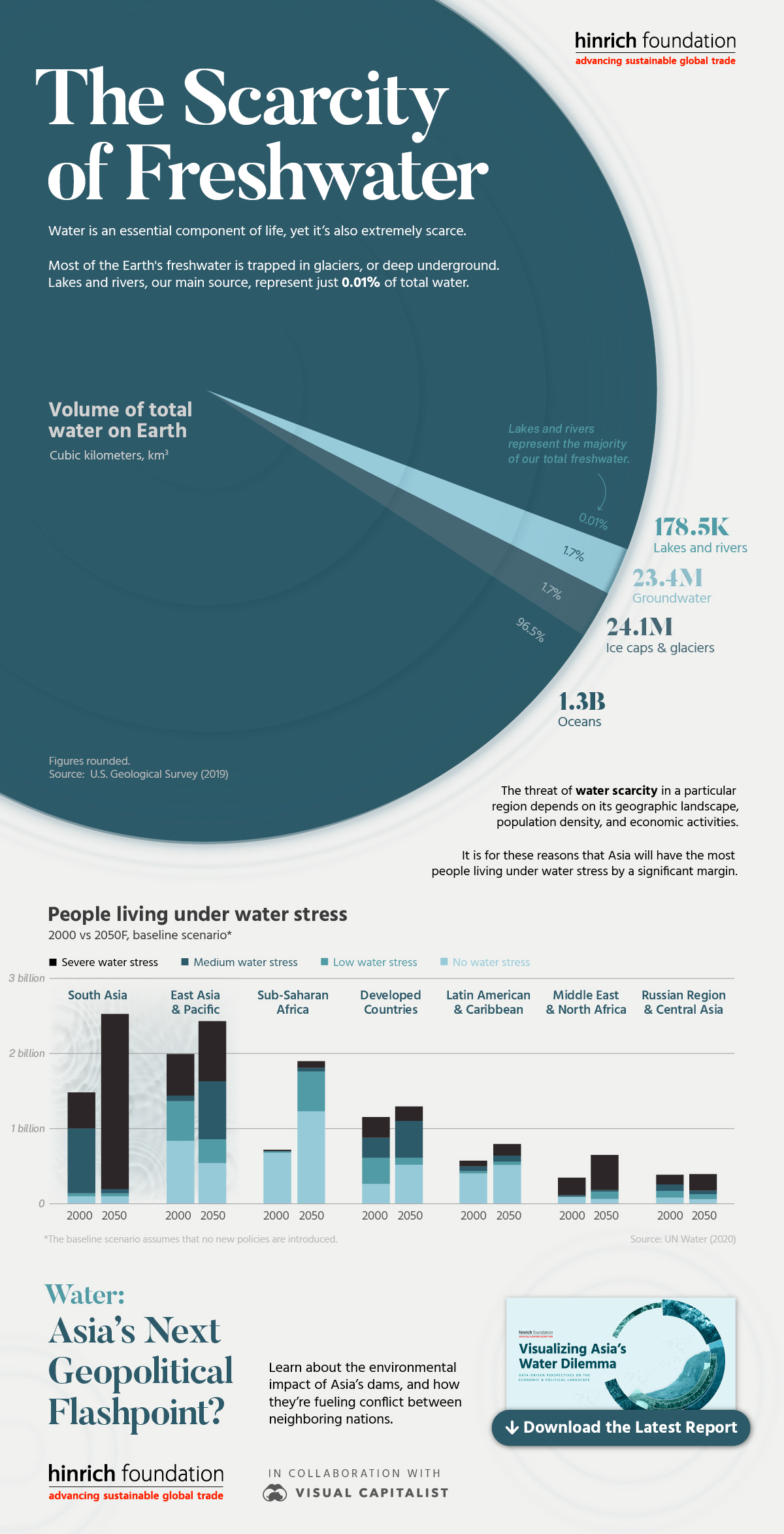
Visualizing All of the World’s Water

The Scarcity of Freshwater
Water is an essential component of life, enabling everything from food production to electricity generation. Given its ubiquity, it’s surprising to see how scarce water actually is.
For example, lakes and rivers supply the majority of our freshwater, yet they represent just 0.01% of the Earth’s total water resources.
This graphic from Hinrich Foundation introduces their latest free report, Visualizing Asia’s Water Dilemma, produced in partnership with Visual Capitalist.
This data-driven report provides a global overview of water scarcity, as well as a deep dive into the related geopolitical conflicts brewing throughout Asia.
The Total Volume of Water on Earth
The first visualization in this graphic breaks down all of the world’s water, based on estimates from the U.S. Geological Survey.
| Resource | Volume (cubic kilometers) | Percent of total water |
| Oceans | 1,338,000,000 | 96.5 |
| Ice caps & glaciers | 24,064,000 | 1.74 |
| Groundwater | 23,400,000 | 1.69 |
| Lakes and rivers | 178,520 | 0.01 |
When you consider the amount of water needed to produce everyday products, this isn’t very much at all. A smartphone, for example, has a water footprint of over 12,000 liters due to the pollutants from production that must be diluted.
To see a visual breakdown of the water footprint of everyday products, download the free report.
Order Generic ViagraAsia Has the Most People Living Under Water Stress
The second visualization in this graphic outlines the UN’s forecasts for the number of people living under water stress by region, in 2000 and 2050.
Asia will lead by a very wide margin due to its geographic landscape, high population, and dense centers of economic activity.
Water: Asia’s Next Geopolitical Flashpoint?
Asia is home to a complex network of rivers that originate in the Tibetan Plateau, located within China’s borders. From there, these rivers deliver water to many of the world’s most populous countries, including India, Pakistan, and Vietnam.
This geographic reality, combined with unregulated dam building along major rivers, is leading to a growing number of disputes among neighboring countries.
More News
ESG Frameworks and Why They Matter: A Rating Provider’s Perspective
An in-depth overview of key global and regulatory ESG frameworks, explaining how...
UK Proposes Regulation of ESG Ratings to Strengthen Market Trust
The UK proposes formal regulation of ESG rating providers to address transparenc...
Double Materiality Assessment and its Significance
This blog explains the concept of Double Materiality Assessment and why it is be...
How Independent Reviews Enhance Investor Confidence in ESG Debt Markets
SEBI’s 2025 ESG debt framework marks a new phase for India’s sustainable fin...
GHG Protocol x ISO: A New Partnership to Align Global Carbon Accounting
A major shift in corporate climate reporting is underway as the GHG Protocol and...


